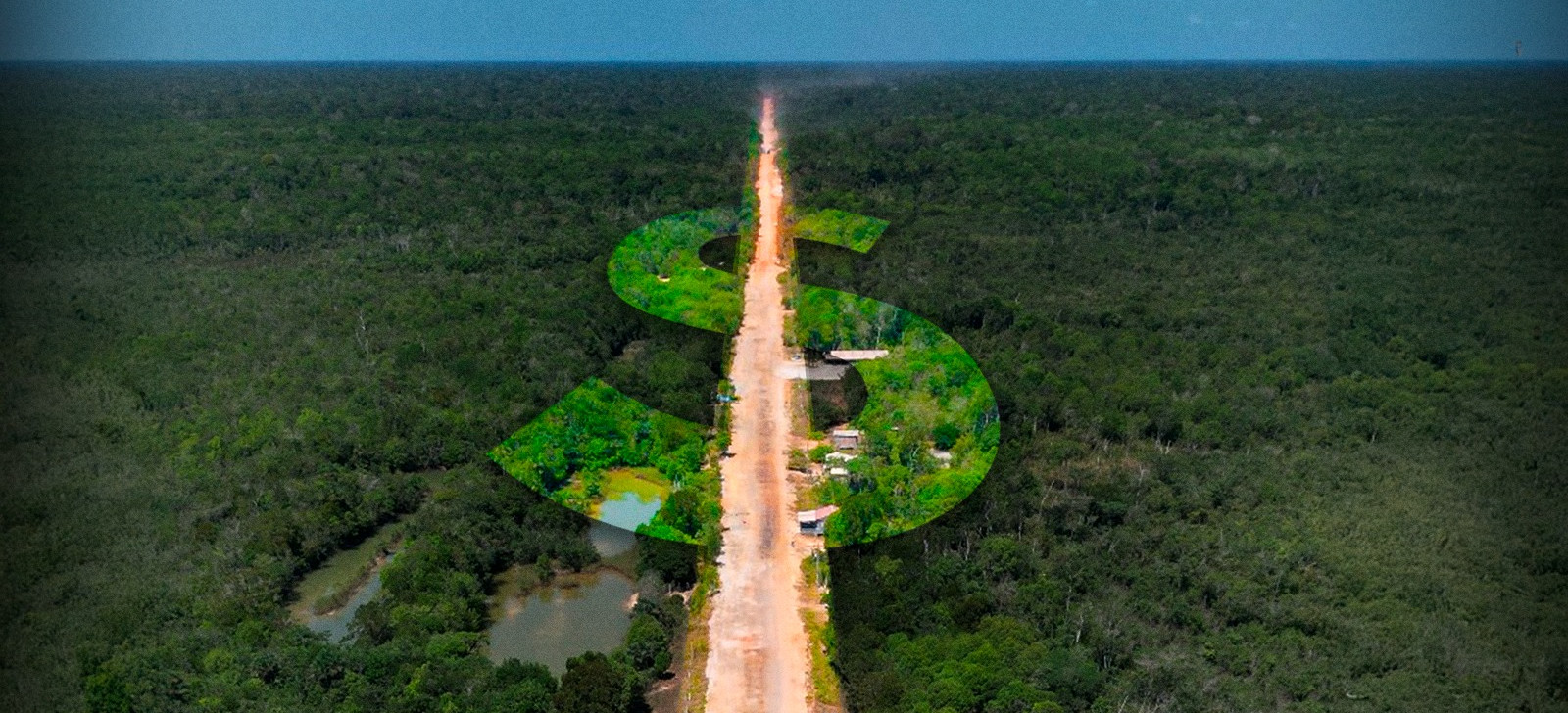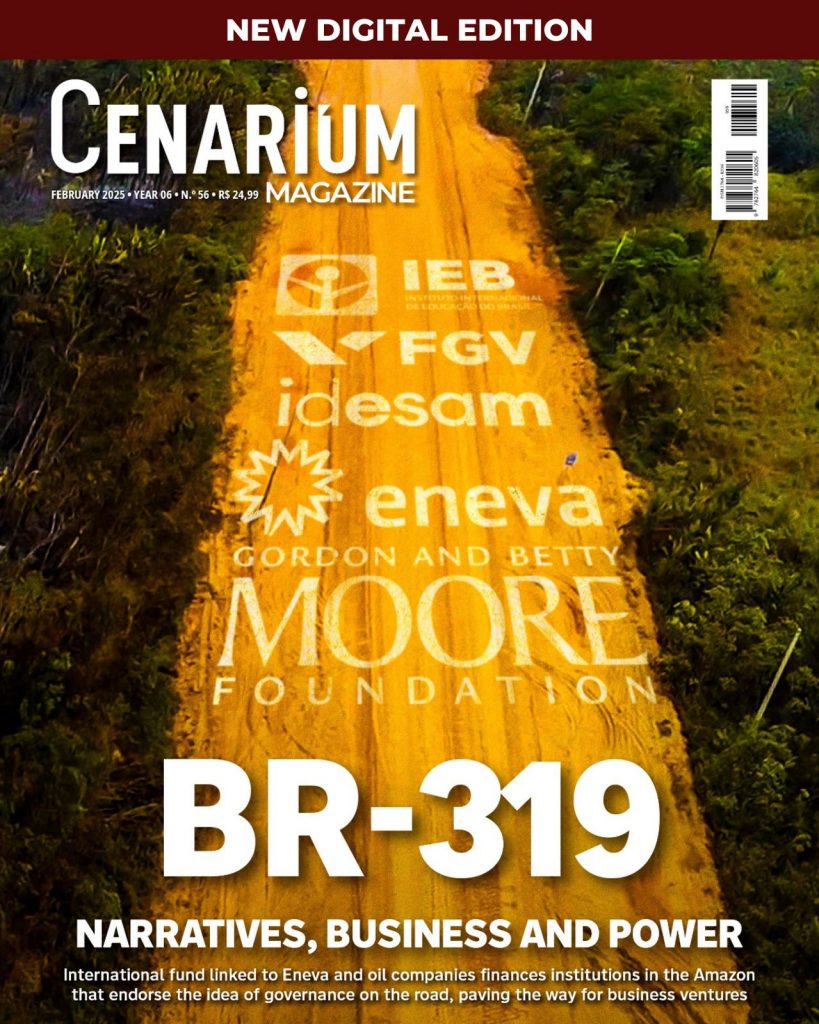EDITORIAL – BR-319: Ideas to Hasten the End of the World?
17 de March de 2025

By Márcia Guimarães
Ailton Krenak, one of Brazil’s greatest thinkers, has a book entitled Ideas to Postpone the End of the World. In it, the author criticises humanity’s exploitative relationship with nature, in which human beings, like parasites, drain everything they can. From this critique, he proposes a shift in perspective, aligned with the Indigenous worldview, in which we are nature, thus allowing us to attempt to avoid self-destruction. Krenak’s way of thinking came to my mind while reflecting on our cover story—but in the opposite sense.
In this edition, we feature institutions that receive funding from an international foundation linked to enterprises that exploit nature in the Amazon and that endorse narratives in favour of reopening the BR-319 highway and encouraging business in the region. Given that the road is a driver of deforestation and a potential catalyst for the forest’s collapse, as scientific studies indicate, could these institutions be fostering ideas to hasten the end of the world?
The cover story is the result of an investigation revealing multimillion-dollar transfers from the Gordon and Betty Moore Foundation (GBMF) to Non-Governmental Organisations (NGOs) and institutions engaged in projects that support the idea of governance capable of controlling the impacts caused by the reopening of the BR-319. According to this narrative, it would thus be possible to repave the highway while “managing” the destruction of the forest and ensuring the rights of traditional peoples in the region, who, under current legislation, must be consulted regarding the enterprise—something that, according to researchers and studies, does not reflect reality.
There are also links to companies that exploit oil and minerals in the Amazon, as well as connections between these institutions and projects aimed at accelerating business in the region.
According to researchers and documents reviewed, the highway paves the way for enterprises that benefit both those who endorse the governance narrative and those who finance these institutions. It is a self-perpetuating cycle which, researchers argue, exposes conflicts of interest.“It is a dystopia: instead of imagining worlds, we consume them,” says Ailton Krenak in another of his books, A vida não é útil (Life Is Not Useful), published in 2020. The phrase could well apply to the scenario presented in our report. And, as Krenak himself would say, “there is nothing sustainable in the economy, because it assumes you will plunder the land, you will take things. If you take and do not give back, it is not sustainable.”
The topic was featured on the cover and as a special report in the latest edition of REVISTA CENARIUM. Click here to read the full content.


